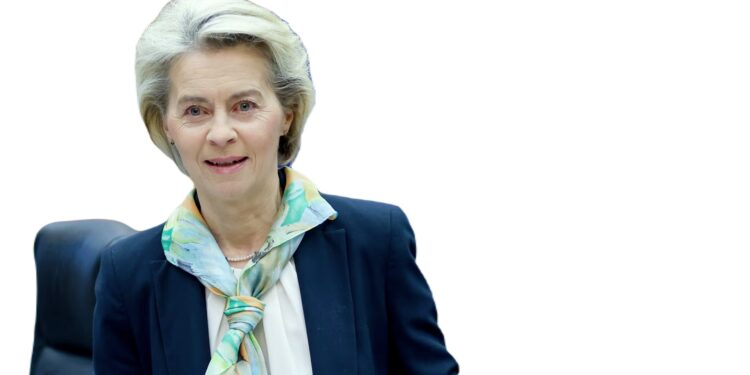European Commission President Ursula von der Leyen has successfully negotiated a delay in planned US tariffs on key European exports following a private conversation with Donald Trump, easing fears of an immediate escalation in transatlantic trade tensions.
The breakthrough came after von der Leyen reportedly spoke directly with the former US president over the weekend, urging restraint as both sides continue discussions on long-standing disputes over trade imbalances, subsidies, and industrial standards. Trump, who is currently campaigning for a return to the White House, agreed to hold off on imposing new tariffs that had been due to take effect in early June.
According to sources close to the talks, von der Leyen emphasised the importance of stability between allies and warned that fresh tariffs could damage fragile European manufacturing sectors still recovering from the energy crisis and supply chain shocks linked to the war in Ukraine. Trump, who has made trade a central pillar of his political brand, reportedly agreed that further disruption could be counterproductive at this stage.
The threatened tariffs would have hit European steel, cars, and luxury goods, prompting concern among EU officials and industry groups. The temporary reprieve gives negotiators more time to reach a broader agreement on reciprocal market access, carbon border adjustments, and digital trade frameworks.
“This is a positive step,” said an EU official in Brussels. “The delay gives us breathing room to work toward fair solutions that benefit both sides of the Atlantic.”
Trump, speaking at a rally in Michigan, confirmed the delay but reiterated his longstanding grievances about European trade practices. “They’ve taken advantage of us for years,” he said. “But Ursula’s a strong woman. She called, we talked, and I said, fine—we’ll wait. But things have to change.”
The development has been met with cautious optimism by European business leaders, who have warned that new tariffs could trigger retaliatory measures and risk reigniting a trade war similar to that seen during Trump’s first term.
German carmakers and French agricultural exporters, in particular, stand to benefit from the pause, which may help avert price shocks and production slowdowns. Meanwhile, EU diplomats are working behind the scenes to shore up a longer-term deal that could survive shifts in US leadership.
Although the delay is not a permanent solution, it signals a willingness from both parties to avoid abrupt confrontation. With elections looming on both sides of the Atlantic, the future of EU–US trade relations remains uncertain—but for now, diplomacy has bought some time.
newshub finance



Recent Comments